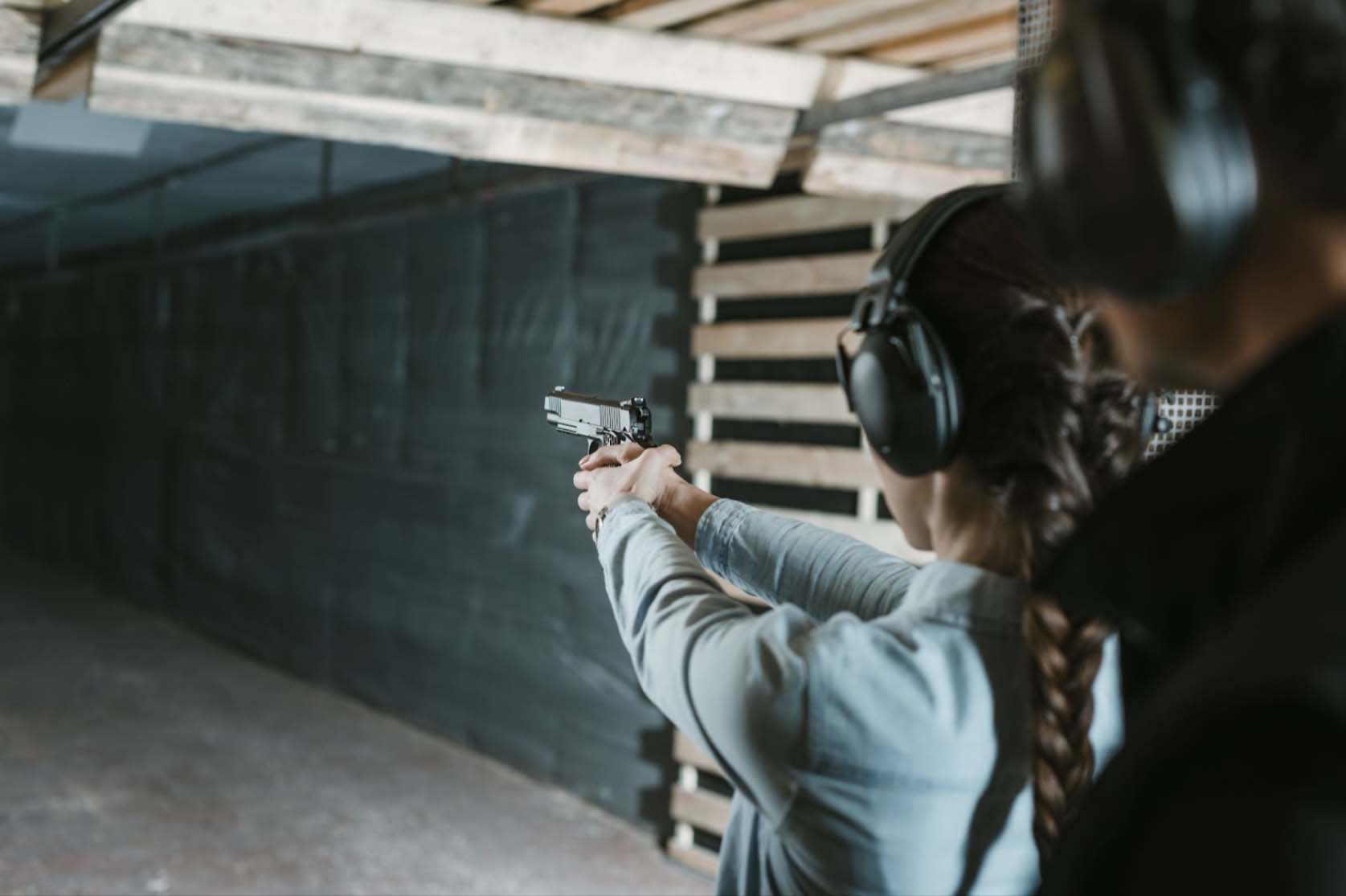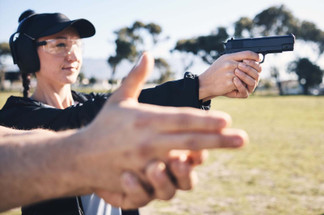Jun 11th 2024
5 Essential Tips for Beginners in Gun Training
5 Essential Tips for Beginners in Gun Training
Gun training is an essential aspect of responsible firearm ownership. Whether you're considering purchasing your first firearm or you've already made the investment, proper training ensures safety and proficiency. For beginners, entering the world of gun training can seem daunting, but with the right guidance, it can be a rewarding and empowering experience. Here are five essential tips for beginners in gun training.
1. Prioritize Safety First
Understand the Four Cardinal Rules of Gun Safety
The foundation of any gun training begins with understanding and adhering to the four cardinal rules of gun safety:
Treat Every Gun as if It Were Loaded
Even if you know a gun is unloaded, always handle it with the assumption that it is loaded. This mindset helps prevent accidents.
Never Point a Gun at Anything You’re Not Willing to Destroy
Always be aware of where your gun is pointing, and keep it aimed in a safe direction.
Keep Your Finger Off the Trigger Until You’re Ready to Shoot
Your finger should rest outside the trigger guard until you have a target in your sights and are prepared to fire.
Be Sure of Your Target and What’s Beyond It
Understanding what lies behind your target is crucial to avoid unintended damage or injury.
Learn Proper Handling and Storage
Proper handling and storage of firearms are critical components of gun safety. Beginners should invest in a quality gun safe or lockbox to prevent unauthorized access. Additionally, learning how to properly clean and maintain your firearm ensures its reliability and longevity.
2. Choose the Right Firearm
Consider Your Purpose
The type of firearm you choose should align with your intended purpose. Are you interested in self-defense, hunting, or recreational shooting? Each category has specific types of firearms that are best suited for the task.
Seek Professional Advice
Consulting with experienced shooters or visiting a reputable gun shop can provide valuable insights into selecting the right firearm. Professionals can help you understand the differences between various models and calibers, ensuring you make an informed decision.
Try Before You Buy
Whenever possible, try out different firearms at a shooting range before making a purchase. This hands-on experience can help you determine which gun feels most comfortable and suits your needs.
3. Take a Basic Firearms Training Course
Enroll in a Certified Course
A certified firearms training course is an excellent way for beginners to gain foundational knowledge and skills. These courses are typically taught by experienced instructors who cover essential topics such as gun safety, basic shooting techniques, and legal considerations.
Learn the Fundamentals
Basic firearms training courses will teach you the fundamentals of shooting, including:
Stance
The way you stand and position your body affects your stability and accuracy.
Grip
Proper grip techniques help manage recoil and improve control.
Sight Alignment
Learning how to align your sights with your target is crucial for accurate shooting.
Trigger Control
Understanding how to smoothly pull the trigger without disturbing your aim.
Practice Regularly
Consistent practice is key to becoming proficient with a firearm. Regularly visiting a shooting range allows you to apply what you’ve learned in training and improve your skills over time.
4. Develop a Routine for Dry Fire Practice
What Is Dry Fire Practice?
Dry fire practice involves practicing shooting techniques without live ammunition. This method allows you to focus on fundamentals such as grip, stance, sight alignment, and trigger control without the distractions of recoil and noise.
Benefits of Dry Fire Practice
Dry fire practice offers several benefits, including:
- Improved Muscle Memory: Repeated practice helps engrain proper techniques into your muscle memory.
- Cost-Effective Training: It’s a cost-effective way to practice since it doesn’t require ammunition.
- Enhanced Focus: Without the noise and recoil, you can concentrate on perfecting your form and technique.
Safety Precautions
Always ensure your firearm is unloaded and that no live ammunition is present in your practice area. Using snap caps (dummy rounds) can provide additional safety and protect your firearm during dry fire practice.
5. Understand the Legal and Ethical Responsibilities
Familiarize Yourself With Local Laws
Gun laws vary significantly from one jurisdiction to another. It’s crucial to familiarize yourself with the laws and regulations governing firearm ownership and use in your area. This includes understanding:
- Permit and Licensing Requirements: Know what permits or licenses you need to legally own and carry a firearm.
- Use of Force Laws: Understand the legal circumstances under which you are allowed to use a firearm for self-defense.
- Safe Storage Requirements: Many areas have laws regarding how firearms must be stored to prevent unauthorized access.
Ethical Considerations
Owning and using a firearm comes with significant ethical responsibilities. As a gun owner, you must commit to using your firearm responsibly and safely, ensuring it is only used for lawful purposes.
Engage With the Community
Joining a local shooting club or organization can provide ongoing education and support. Engaging with the community allows you to learn from more experienced shooters, stay informed about changes in laws and regulations, and participate in events and competitions.

Learn More About Gun Training Today
Embarking on the journey of gun training as a beginner can be both exciting and challenging. By prioritizing safety, choosing the right firearm, taking a basic training course, practicing regularly, and understanding your legal and ethical responsibilities, you can develop the skills and confidence needed to become a responsible and proficient gun owner. Remember, continuous learning and practice are essential components of firearm training, ensuring that you are always prepared and capable of handling your firearm safely and effectively.
Visit our Gunline Shooting blog to learn more about proper gun ownership and training today!

